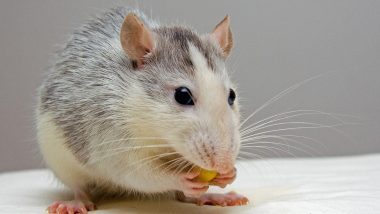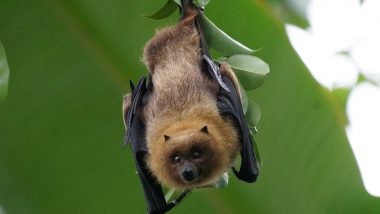Arizona, July 25: A health alert has been issued in US after a rodent-borne hantavirus claimed the lives of four individuals. The Arizona Department of Health Services reported seven cases of Hantavirus Pulmonary Syndrome (HPS) from January to July, a severe and sometimes fatal respiratory illness. Additionally, two cases were found in California, highlighting the virus's spread beyond Arizona. While 3 people died in Arizona, 1 succumbed to the virus in California.
Hantavirus primarily spreads to humans through droplets from the urine, saliva, or feces of infected rodents, particularly deer mice. Symptoms of the virus include fever, headache, and muscle pain, which can rapidly escalate to severe breathing difficulties. While the virus does not transmit from person to person, it can appear in various regions, not confined to specific areas. Nipah Virus Alert: After Kerala, Nipah Virus Warning in Rajasthan.
The US Centres for Disease Control and Prevention (CDC) identifies hantaviruses as a family of viruses mainly spread by rodents, causing diseases such as Hantavirus Pulmonary Syndrome (HPS) and Hemorrhagic Fever with Renal Syndrome (HFRS). Nipah Virus in Kerala: Infected 14-Year-Old Boy Dies; Results of 7 Others Including His Friends Negative, Says Health Minister Veena George.
Symptoms
Initial symptoms of hantavirus infection include fatigue, fever, muscle aches, headaches, chills, nausea, vomiting, and abdominal pain. Later symptoms involve coughing and shortness of breath, with a 38% mortality rate for HPS. HFRS symptoms, which emerge 1-8 weeks post-exposure, can include headaches, fever, chills, nausea, and blurred vision, potentially leading to severe outcomes like low blood pressure, shock, vascular leakage, and kidney failure.
Treatment
The CDC notes there is no specific treatment, cure, or vaccine for hantavirus. However, early recognition and medical care in an intensive care unit can improve outcomes. Patients may receive intubation and oxygen therapy to manage severe respiratory distress.
Prevention
Preventing hantavirus infections hinges on rodent control. Avoiding contact with rodent urine, droppings, saliva, and nesting materials is crucial, particularly when cleaning rodent-infested areas. The CDC emphasises that taking these precautions can significantly reduce the risk of infection.
(The above story first appeared on LatestLY on Jul 25, 2024 07:59 PM IST. For more news and updates on politics, world, sports, entertainment and lifestyle, log on to our website latestly.com).













 Quickly
Quickly




















